

SEVEN KILLED AS MONSOON RAINS BATTER K ARACHI WITH MORE SHOWERS LOOMING
g RAIN EMERGENCY DECLARED ACROSS PORT CITY WITH ALL TEAMS PLACED ON HIGH ALERT TO RESPOND TO URBAN FLOODING, TRAFFIC DISRUPTIONS AND OTHER RAIN-RELATED INCIDENTS
g K-ELECTRIC CLAIMS DISTRIBUTION SYSTEM REMAINS STABLE, BUT SAFETY OF LIFE AND PROPERTY, AND PREVENTION OF ACCIDENTS, REMAINS TOP PRIORITY
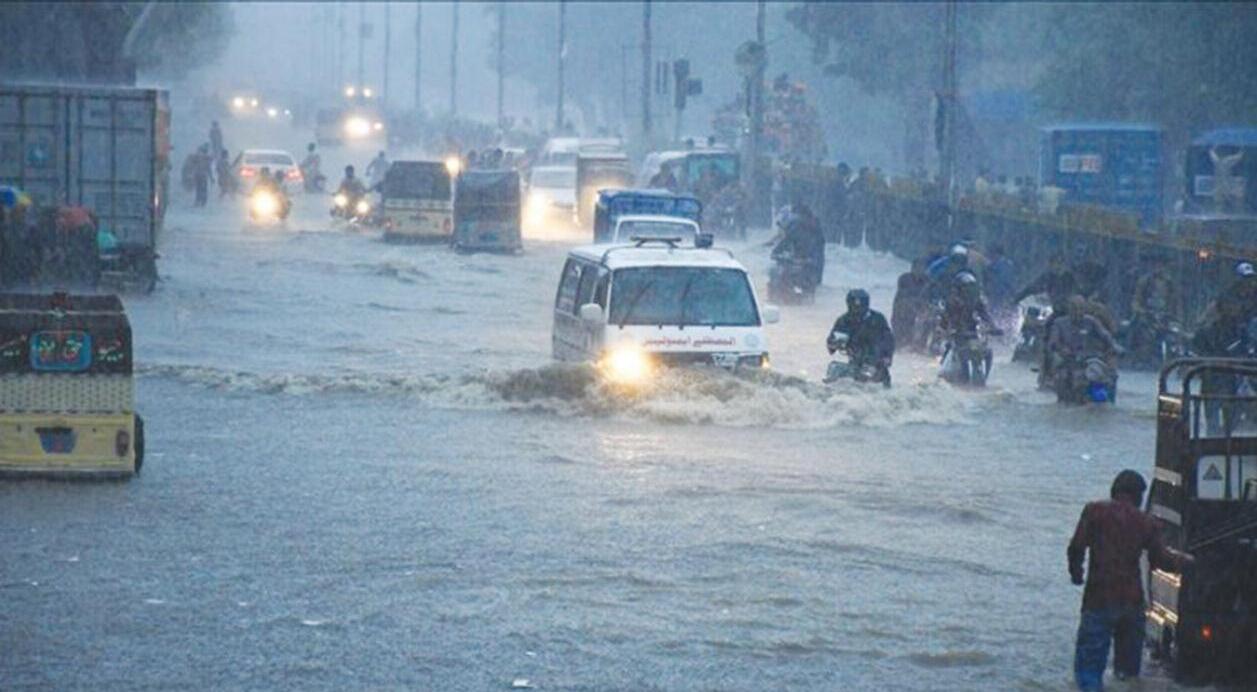
g COMMUTERS FACE CHALLENGES A S HOURS-LONG RAIN SPELL LED TO THE CITY S MAIN THOROUGHFARES CHOKED WITH TRAFFIC
g PUBLIC HOLIDAY AND CLOSURE OF ALL PRIVATE AND PUBLIC SCHOOLS ANNOUNCED A S PMD PREDICTS MORE RAINS IN KARACHI



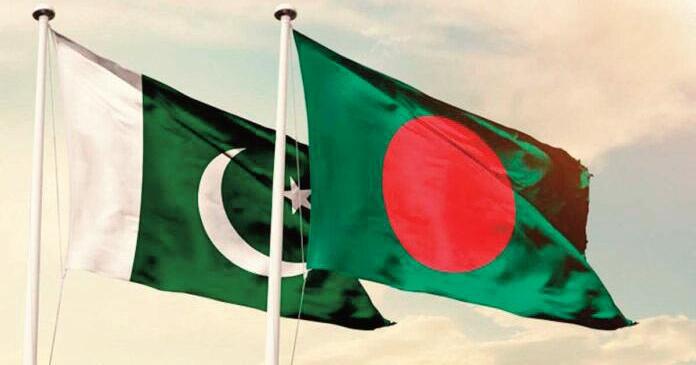
Flood affects 32 mini power stations in KP
across the Country” before the ECC seeking approval for this alignment According to industry sources the ECC s decision authorizes NEPRA to determine and apply DISCOs FCAs on K-Electric consumers on the same timelines and terms, while considering the financial sustainability of the power sector and the federal government s
uniform tariff policy Any gap be-
tween the monthly FCA calculated for K-Electric and that of DISCOs will be covered through subsidies or cross-subsidies The new arrangement will take effect from the FCA of June 2025 to be reflected in electricity bills issued in August 2025
The National Electricity Policy 2021, approved by the Council of Common Interests (CCI) provides that while financial self-sustainability is the long-term goal the government may continue to maintain uniform tariffs across regions in line with socio-economic objectives and budgetary constraints So far, while base tariffs and quarterly adjustments have remained uniform across the country the FCA mechanism has been different for K-Electric and DISCOs Because of higher fuel cost references in K-Electric s tariff determinations, the federal government has been bearing the difference in the form of subsidies Officials said the new mechanism would streamline this process and gradually reduce reliance on direct subsidies Section 31 of the Regulation of Generation, Transmission and Distri-
bution of Electric Power Act, 1997, requires NEPRA to be guided by the national electricity policy, the national electricity plan and any government guidelines in determining tariffs This provision has now been invoked to harmonize the FCA regime for both K-Electric and DISCOs According to sources, the summary was circulated to the Finance Division and NEPRA for comments The Finance Division supported the proposal on the condition that it should not create additional financial obligations for the government It further suggested that if in the future K-Electric’s FCA impact turns out to be higher than that of DISCOs the arrangement may need reconsideration NEPRA while insisting that FCAs for both K-Electric and DISCOs should continue to be independently calculated based on their respective fuel cost data and generation mix to ensure transparency agreed that consumer-end uniformity could be achieved through policy alignment backed by subsidies or cross-subsidies The regulator also recommended that the implications of introducing a single dispatch model be examined


ISBP Governor puts his finger on the nub
T will come as no surprise that the Governor of the State Bank of Pakistan knows his economic theory When Jameel Ahmad told a seminar in Karachi on Monday that the key structural challenge to the economy was the low savings rate he was merely expressing an economic orthodoxy He was coy, however, about his own role in this As SBP Governor, he has an extremely crucial role to play in this The theory behind his remark is this: consumption plus savings are equal to income (or GDP) Savings depend on the quality of money It is an economic truism that inflation disincentivizes saving, for if the value of money is going down, the economic actor who has the money, has no real reason to keep the money and defer consumption Money, according to the textbooks, is only money if it acts as a store of value and thus allows for delayed consumption However, inflation means that money buys less as time goes on and proves not to store value Inflation is supposed to be controlled by the SBP mainly through controlling the money supply Of course there is also the danger of sending the economy into recession if inflation stays too low for too long Mr Ahmad has a delicate balancing act to perform However, it is a relief to see him identifying the one single most important factor in the economic picture He noted that there had been an improvement in almost all other indicators, but that the one which stubbornly seemed fixed was the savings rate He spoke about the need to mobilize these resources, about the need to provide more means of investing, but he should have mentioned the steps taken by the SBP to make money itself a store of value The need to keep money cheap, so that it can be used for growth, must be balanced against the need to make savings attractive For this, more attention should be paid to the real rate of return than seems to be the case It should be remembered that while there is a cultural tradition of extravagance our eastern neighbour has overcome it enough to bring its savings rate in line with that seen in economies which have grown in recent years It should not be forgotten that growth is needed to keep a young workforce employed, and that growth can only come from a high savings rate

Dedicated to the legac y of late Hameed Nizami Arif Nizami (Late) Founding Editor
M A Niazi Editor Pakistan Today Babar Nizami Editor Profit
Opportunit y or the next resource trap?
On
with Enron s Dabhol power project in the 1990s is a case in point When the Maharashtra state government tried to withdraw from the deal, the contract required the *central* government not Enron to bear the financial penalties To make matters worse, the arbitration venue was London effectively removing the dispute from Indian legal and political control The message was clear: even when the foreign company fails to deliver on its promises the host country still shoulders the losses
THE SAINDAK GOLD LESSON: Pakistan has already learned this lesson the hard way The Saindak project in Balochistan aimed at extracting gold and copper was once hailed as a turning point for regional development But the contract was riddled with disadvantageous terms When the provincial government of Balochistan sought to terminate the deal over its unfairness, the result was shocking: instead of gaining control over its own gold Pakistan was forced to pay out of its own pocket due to punitive clauses buried deep in the agreement This episode demonstrated that even when resource ownership is on paper the wrong contract can turn a national asset into a financial liability A PATTERN THAT REPEATS: From the uranium mines of the Sahel
These clauses are not just legal technicalities they can determine whether a country benefits from its resources or ends up paying for the privilege of giving them away THE ENRON PRECEDENT: India s experience
Minerals are not wealth by themselves; they are only wealth if they are extracted under terms that strengthen national sovereignty, protect the environment, and directly benefit the people . The world is knocking at PakistanÊs mineral door. The question is whether Pakistan will open it as a par tner· or as a pawn.
H o w t h e d i g i t a l a g e i s r e w r i t i n g P a k i s t a n i L i t e r a t u r e



just fresh talent The flood of content can drown out quality Viral popularity often rewards speed and emotional punch over careful craft Some pieces feel more like social media stunts than literature In the online world, short attention spans are yet another problem for today’s authors When your audience is used to skimming endless
entire works are often reposted without credit A story can gain thousands of likes for someone who didn t even write it Such practice hurts both the livelihood and the motivation of genuine writers So how do we keep the good while managing the bad? It is possible by treating digital and print media as partners, not rivals Publishers could run hybrid models serializing novels online to build readership then releasing polished print editions Through literary festivals and live-stream sessions it is possible to engage all book lovers For writers, the internet is a double-edged sword No doubt, it makes sharing easier but it also demands discipline The same tools used for quick posting can be harnessed for deeper research richer collaboration and more thoughtful storytelling Interac-
The pen hasnÊt disappeared; itÊs simply found a new paper. Stories now live on screens as much as on shelves. If we hold on to the qualities that have always defined good writing, then it is possible that this era could expand our literature instead of eroding it. In the end, itÊs not about the medium. Whether words are inked onto a page or glow on a screen, their purpose is the same: to move, to challenge and to connect.
Dr MuhaMMaD anwar Farooq

Pakistan’s floods and International Accountabilit y


Ostates or areas beyond national jurisdiction Pakistan’s vulnerability to climate-induced disasters such as the recent floods is a direct consequence of emissions from industrialized nations Despite contributing
minimally to global emissions Pakistan faces the brunt of climate impacts including extreme weather events, rising sea levels, and melting glaciers These impacts threaten the right to life, health, housing, and an adequate standard of living for Pakistan’s citizens as recognized under international human rights law Every flood destroys livelihoods displaces families and leaves children without schools an assault not only on life but on dignity and the fundamental rights of future generations
THE CASE FOR REPARATIONS: The concept of reparations is grounded in the need to address historical injustices and provide redress to those harmed In the context of climate change, reparations would involve financial and technical support from industrialized nations to assist countries like Pakistan in mitigating and adapting to climate impacts This support should go beyond voluntary aid and take the form of binding commitments and compensation for loss and damage At the 2023 COP28 conference, a Loss and Damage Fund was established to provide financial assistance to countries suffering from climate impacts However the initial pledges to this fund amounted to approximately $700 million a sum that covers less than 0 2 percent of the estimated $400 billion in annual losses developing countries face due to climate change This glaring disparity underscores the insufficiency of current international efforts and the urgent need for a more robust and equitable approach
Mere pledges without accountability cannot prevent future tragedies or restore lives already lost
THE ROLE OF INDUSTRIALIZED NA-
TIONS: The historical responsibility for climate change lies predominantly with industrialized nations which have emitted
the majority of greenhouse gases since the Industrial Revolution The USA for instance, has contributed approximately 25 percent of global cumulative CO₂ emissions, while the European Union has contributed roughly 15 percent In contrast Pakistan’s cumulative emissions are negligible yet it faces some of the most severe consequences of climate change
These nations have a legal and moral obligation to compensate Pakistan and other vulnerable countries for the loss and damage incurred due to their actions This compensation should not be framed as charity or goodwill but as a legal obligation to address the harm caused by their emissions Without such reparations the cycle of injustice continues leaving the most vulnerable populations to bear the cost of a crisis they did not create
STORIES BEHIND THE NUMBERS: numbers alone cannot capture the human suffering behind these floods In Buner entire families were washed away while trying to save livestock or flee collapsing homes Children who survived are now homeless, attending makeshift learning centres under tarpaulins exposed to the harsh monsoon rains Elderly survivors recount how rescue teams arrived too late to save neighbors trapped by sudden landslides Women in remote villages, cut off from roads and aid, struggle to access basic necessities while also caring for traumatized children These stories highlight that climate change is not an abstract problem; it is a matter of human rights and human dignity THE PATH FORWARD To ensure justice and accountability, the following steps should be taken:
1 ESTABLISH A BINDING CLIMATE REPARATIONS FRAMEWORK: In-
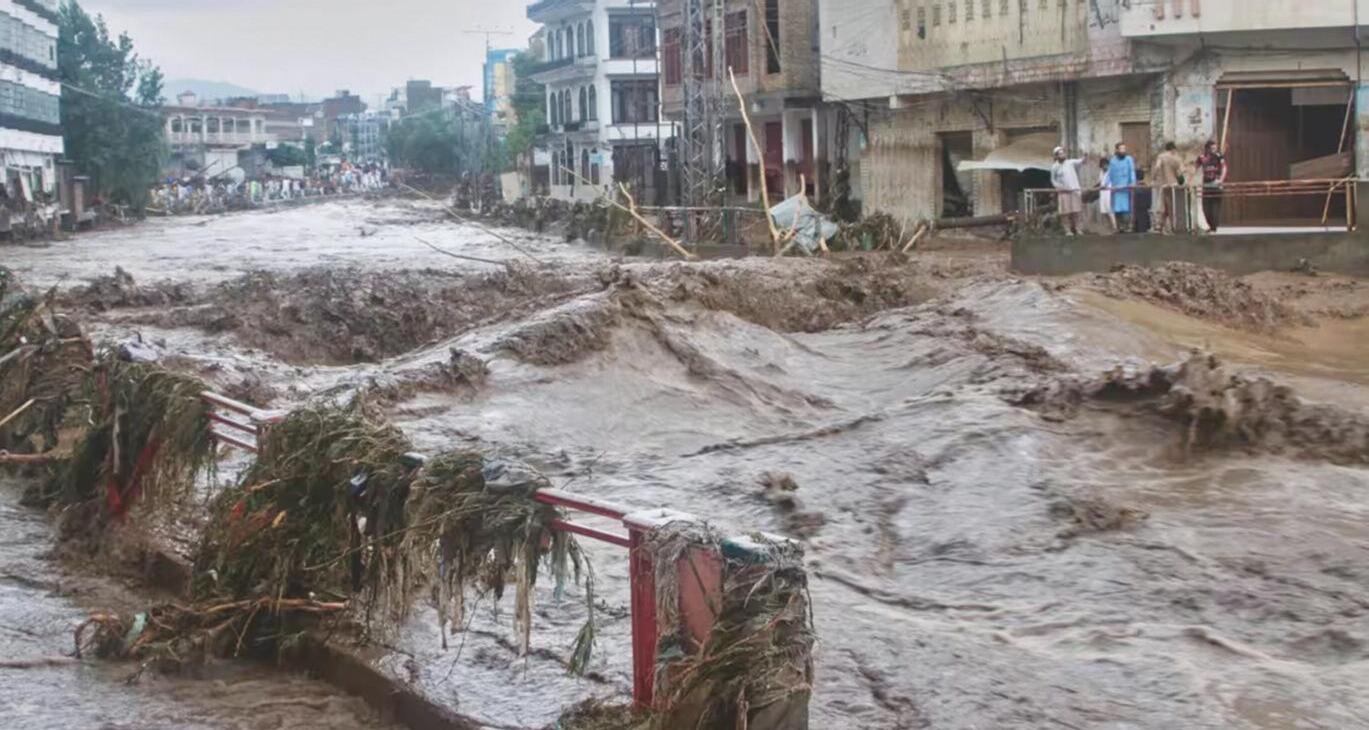
dustrialized
The floods in Buner are a stark reminder of the human cost of climate change and the urgent need for reparations. PakistanÊs suffering is not an isolated incident but part of a broader pattern of injustice faced by vulnerable nations. Industrialized nations cannot claim ignorance; they have the means and the responsibility to act. True climate justice requires legally binding reparations, robust funding for loss and damage, and the recognition that human rights are inseparable from environmental stewardship. Only through these measures can we hope to restore dignity to those affected and ensure that tragedies like the Buner floods are not repeated. Reparations are are a legal and moral obligation.
I n d i a ’ s s e l f - d e s t r u c t i v e w a r o n t h e r o o t s o f t h e M u g h a l E m p i r e
Today ’s India would be unrecognizable without the imprint the Mughals had made, and continue to make, on its societ y and c ulture
In recent years, it has severely cur tailed or even abolished the teaching of Mughal histor y in all schools that follow the national curriculum Coverage of the Mughals has been eliminated in Class VII (for students about 12 years old), a little of it appears in Class VIII, none at all in Classes IX to XI, and a shor tened version sur vives in Class XII
Authorities have eliminated the initial ‘a’ from the name of one of Taj Mahal ’s surrounding gardens, so that what had been Aram B agh, the ‘G arden of Tranquilit y ’ , is now R am B agh, the ‘G arden of R am’, the popular Hindu deit y
Law yers in Agra have petitioned the cour ts to declare Taj Mahal, a Hindu temple
Much of modern India’s administrative and legal infrastruc ture was inherited from Mughal prac tices and procedures

“Since R ajput women could become legal wives of the emperor, from Akbar ’s time onwards, an emperor ’s child by a R ajput mother was eligible for the throne

AS is true of autocracies everywhere wrote David Remnick last April this Administration demands a mystical view of an imagined past Although Remnick was referring to Trump’s America, something of the same sort could be said of India today
Informed by Hindutva (Hindu-centric) ideals the country s governing Bharatiya Janata Party imagines a Hindu golden age abruptly cut short when Muslim outsiders invaded and occupied an imagined sacred realm, opening a long and dreary dark age of anti-Hindu violence and tyranny
In 2014 India’s prime minister declared that India had experienced 1 200 years of ‘slavery’ (ghulami) referring to 10 centuries of Muslim rule and two of the British Raj But whereas the British in this view had the good sense to go home, Muslims never left the land they had presumably violated and plundered To say the least, India’s history has become a political minefield
Between the early 16th and the mid-18th century, towards the end of those 12 centuries of alleged “slavery” most of South Asia was dominated by the Mughal Empire a dazzling polity that governed by a dynasty of Muslims was for a while the world s richest and most powerful state Although it declined precipitously during the century before its liquidation by Queen Victoria in 1858, today’s India would be unrecognizable without the imprint the Mughals had made and continue to make on its society and culture It was they who for the first time unified most of South Asia politically
On every August 15 since 1947 India
Fort, built in 1648
Much of modern India’s administrative and legal infrastructure was inherited from Mughal practices and procedures The basis of India s currency system today the rupee was standardized by the Mughals Indian dress architecture languages art and speech are all permeated by Mughal practices and sensibilities
It s hard to imagine Indian music without the sitar, the tabla, or the sarod Almost any Indian restaurant, whether in India or beyond will have its tandoori chicken kebab biryani or shahi paneer One can hardly utter a sentence in a north Indian language without using words borrowed from Persian the Mughals official language
INDIA NOW: India s most popular entertainment medium Bollywood cinema is saturated with dialogue and songs delivered in Urdu a language that rooted in the vernacular tongue of the Mughal court diffused throughout India thanks to its association with imperial patronage and the prestige of the dynasty s principal capital Delhi Yet despite all this and notwithstanding the prime minister s national address at Delhi s Red Fort, India’s government is engaged in a determined drive to erase the Mughals from public consciousness, to the extent possible In recent years it has severely curtailed or even abolished the teaching of Mughal history in all schools that follow the national curriculum Coverage of the Mughals has been eliminated in Class VII (for students about 12 years old), a little of it appears in Class VIII, none at all in Classes IX to XI, and a shortened version survives in Class XII In 2017 a government tourism brochure omitted any mention of the Taj Mahal the acme of Mughal architecture and one of the world s most glorious treasures completed in 1653 Lawyers in Agra the monument s site have even petitioned the courts to have it declared a Hindu temple
Although such radical measures have failed to gain traction, the national government has made more subtle efforts to dissociate the monument from the Mughals and identify it with Hindu sensibilities For example authorities have eliminated the initial a from the name of one of its surrounding gardens so that what had been Aram Bagh the Garden of Tranquility is now Ram Bagh the Garden of Ram , the popular Hindu deity This is the same deity to which India s current government recently dedicated an extravagant temple complex on the site of the Babri Masjid the mosque in
eastern India that the Mughal Empire’s founder had built in 1528, but which a mob of Hindu activists tore down brick by brick in 1992
All of this prompts two related questions: How did a rich Persian-inflected Mughal culture sink such deep roots in today s India in the first place? And why in recent years has the memory of that culture come under siege?
THE ADVENT OF THE MUGHAL-RAJPUT
ALLIANCE: Ever since the early 13th century a series of dynastic houses known collectively as the Delhi sultanate had dominated the north Indian plain The last of these houses the ethnically Afghan Lodis was dislodged by one of the most vivid figures in early modern history, Zahir al-Din Babur (1483-1530) In 1526, Babur led an army of mostly free-born Turkish retainers from his base in Kabul down through the Khyber Pass and onto the wide Indo-Gangetic plain thereby launching what would become the Mughal Empire
As was true for the Delhi sultans the new polity s success lay in controlling access to ancient trade routes connecting Delhi and Lahore with Kabul, Balkh, and Central Asian markets, such as Samarkand and Bukhara For centuries, cotton and other Indian goods moved northwards along this route while horses more than a hundred thousand annually by Babur s day moved southwards to markets across South Asia
War horses had long formed the basis of power for Indian states, together with native war elephants But the larger and stronger horses preferred by Indian rulers had to be continually imported from abroad, especially from Central Asia’s vast long-feathered grasslands where native herds roamed freely
Having established a fledgling kingdom centred on Delhi Agra and Lahore Babur bequeathed to his descendants a durable connection to the cosmopolitan world of Timurid Central Asia, a refined aesthetic sensibility, a love of the natural world reflected in his delightful memoir, the Baburnama, and a passion for gardens Aiming
Noor Zafar

Wang noted
The 24th round of talks between the Special Representatives of China and India on the Boundary Question is held in New Delhi India, August 19, 2025 /Chinese Foreign Ministry
The 24th round of talks between the Special Representatives of China and India on the Boundary Question is held in New Delhi India August 19 2025 /Chinese Foreign Ministry He underlined that China attaches great importance to Indian Prime Minister Narendra Modi s upcoming visit to China for the Shanghai Cooperation Organization (SCO) Summit in Tianjin, and looks forward to India’s positive contribution to the success of the event
Wang urged two sides joint efforts to follow the strategic guidance of their leaders adopt a dual-track approach in handling bilateral ties and the boundary issue He also called for increasing mutual trust through dialogue expanding exchanges and cooperation and working toward reaching
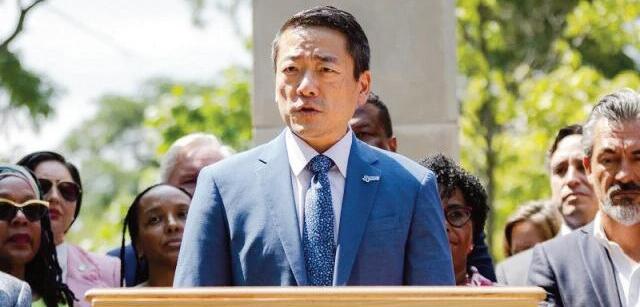
Democrats return after fleeing Texas
redistricting battle across the country, with Republican governors in several other states exploring new maps in a bid to protect the party’s razor-thin majority in the US House of Representatives
consensus on issues such as border management boundary negotiations and cross-border exchanges Such efforts will help properly resolve specific issues, achieve further progress, and create favorable conditions for the sustained improvement and development of bilateral relations Wang added Doval for his part said that the Kazan meeting between the two leaders marked a turning point for India-China relations as mutual perceptions between the two sides have seen positive changes, border areas have remained peaceful and stable, and the relationship has made breakthrough progress Wang Yi speaks at the 24th round of talks between the Special Representatives of China and India on the Boundary Question in New Delhi India August 19 2025 /Chinese Foreign Ministry Wang Yi speaks at the
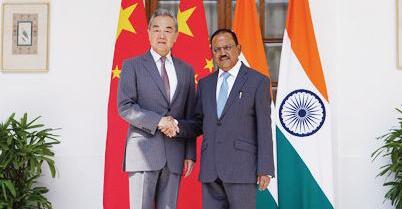
Europe seeks clarity as Trump promises sec urity guarantees for Ukraine
ball Ukrainian President Volodymyr Zelenskiy hailed Monday s extraordinary summit at the White House with the US president as a major step forward towards ending Europe s deadliest conflict in 80 years and towards setting up a trilateral meeting with Russia s Vladimir Putin and Trump in the coming weeks
Zelenskiy was flanked by the leaders of allies including Germany France and Britain at the summit and his warm rapport with Trump contrasted sharply with their disastrous Oval Office meeting in February
But beyond the optics the path to peace remains deeply uncertain and Zelenskiy may be forced to make painful compromises to end the war, which began with Russia’s full-scale invasion in February 2022 and which analysts say has killed or wounded more than 1 million people
While the Washington talks allowed for a temporary sense of relief in Kyiv there was no let-up in the fighting Russia launched 270 drones and 10 missiles in an overnight attack on Ukraine, the Ukrainian air force said, the largest this month The energy ministry said Russia had targeted energy facilities in the central Poltava region home to Ukraine’s only oil refinery causing big fires
The good news is that there was no blow-up (at the Whte House) Trump didn t demand Ukrainian capitulatin nor cut off support The mood music was positive and the trans-Atlantic alliance lives on,” John Foreman,

a former British defence attache to Kyiv and Moscow, told Reuters “On the downside, there is a great deal of uncertainty about the nature of security guarantees and what exactly the US has in mind ” Ukraine s allies were to hold talks in the so-called Coalition of the Willing format on Tuesday to discuss the way forward NATO chiefs of defence will also discuss security guarantees for Ukraine on Tuesday, a source close to the matter said, without mentioning further details Zelenskiy said on Tuesday his officials were working on the content of the security guarantees Russia has made no explicit commitment to a meeting between Putin and Zelenskiy Foreign Minister Sergei Lavrov said on Tuesday that Moscow did not reject any formats for discussing the peace process in Ukraine but any meeting of national leaders “must be prepared with utmost thoroughness” It doesn t smell like peace yet I think Putin will not go for it he is not that kind of person said a 63year-old resident of Kyiv Oksana Melnyk I really wanted it all to end peacefully, but, unfortunately, a lot of our people died and it is very bitter Putin has warned that Russia will not tolerate troops from the NATO alliance on Ukrainian soil He has also shown no sign of backing down from demands for territory including land not under Russia s military control following his summit talks with Trump last Friday in Alaska Trump has not specified what form US security guarantees could take, and backed away from insisting that Russia agree to a ceasefire before any peace negotiations kick off in earnest Neil Melvin director International Security at the Royal
Pakistan joins 'Global Sumud Flotilla'
for Gaza aid
ISLAMABAD ( S TA F F R E P O RT ) : A three–six member Pakistani delegation comprising doctors media professionals, and social leaders, is participating in the Global Sumud Flotilla an international mission aimed at breaking the siege of Gaza and delivering urgent humanitarian and medical assistance to Palestinians This was announced by Pakistan Palestine Forum leader Wahaj Ahmed during a press conference at the National Press Club Islamabad alongside Dr Osama Riaz Ismail Khan Syed Aziz Nizami, and Fahad Ishtiaq, who are part of the delegation, according to a press release issued last week Ahmed further said that several prominent and active pro-Palestinian organisations in Pakistan have formed an alliance called the Palestine Action Coalition of Pakistan, which includes Blockout Tehreek, Pak Palestine Forum, Shaab Abi Talib Foundation Youth Link Pakistan Pakistan for Palestine Together for Al-Quds and others Delegation members pledged to highlight Israeli atrocities and stand in solidarity with Palestinians, expressing their readiness to make any sacrifice for the cause Delegations from 44 countries are participating in the mission which also includes human rights activists and medical experts
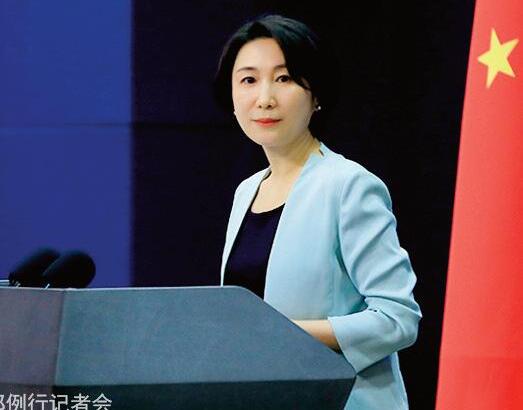

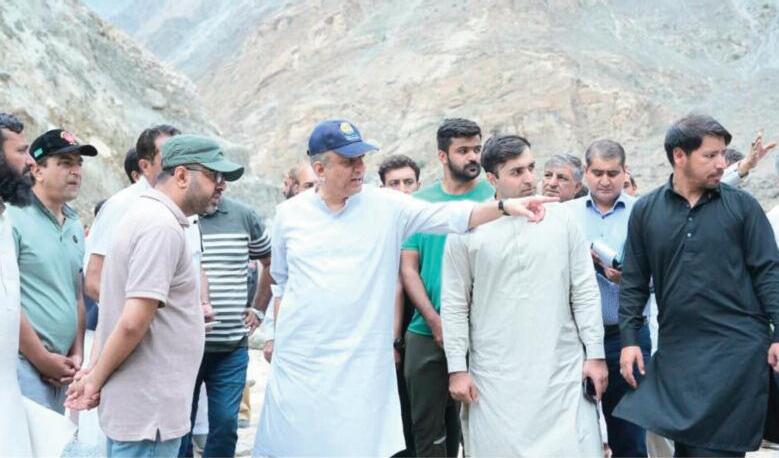
Satak bridge & Jaglot Skardu road opened, says Minister
LAHORE/TOKYO s ta f f r e p o r t
UNJAB Chief Minister Maryam Nawaz has invited Japanese investors to set up manufacturing and assembly units in Punjab’s 20 operational special economic zones (SEZs)
CM Maryam stated this while meeting with Norihiko Ishiguro Chairman of the Japan External Trade Organization (JETRO) on Tuesday The Punjab Chief Minister declared that the province can become a major manufacturing hub for the

The Minister directed the Additional General Manager Mechanical to carry out a complete inspection of the General Store and submit a third-party
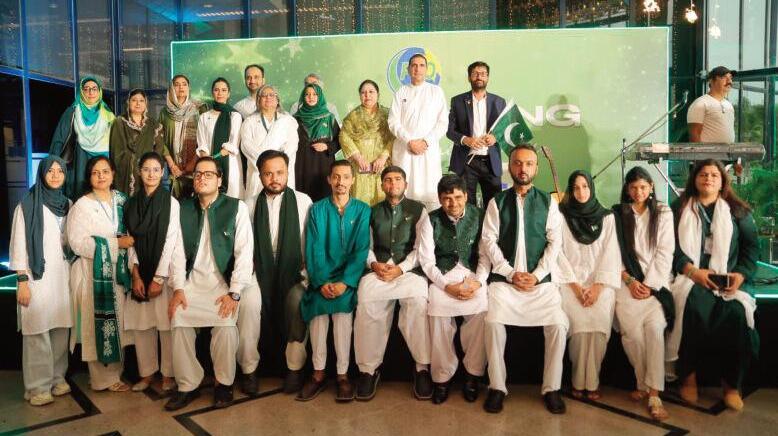
LAHORE
s ta f f r e p o r t
Two Pakistani siblings, Ghulam Bishar Hafi (13) and Ubaydah Al Fiddhah Hafiah (11) have issued a searing call on the occasion of UN World Humanitarian Day 2025 (UN WHD-2025) condemning the global silence over what they describe as the systematic infanticide of Gaza s children In their joint statement, the young activists decried the “shameless over-delays” in the world’s response to the worsening crisis, calling it both a humanitarian and moral collapse “This is no longer just a political crisis it is a moral imperative they declared
The siblings who launched their Voice for the Voiceless campaign last year have chosen an unusual but symbolic form of protest, writing impassioned letters in their own blood to world leaders and humanitarian bodies Their latest blood-written resolution describes Gaza’s children as “homeless restless and peaceless on their knees before the collective conscience of the world begging for their next breath Raising stark questions they asked How many thousands of innocent children must be systematically starved, slaughtered, or buried alive before the world calls it genocide? How many schools, hospitals, and maternity wards must be destroyed before the truth is acknowledged?”
Citing UNICEF figures they warned that more than one million children remain trapped in Gaza s 21-monthlong siege systematically denied food medicine and basic aid a situation they call a can t-live-can t-leave tragedy They likened the treatment of Gazan children to being farmed like animals, and at times, worse than the standards set for kittens or puppies ” The siblings’ ac-
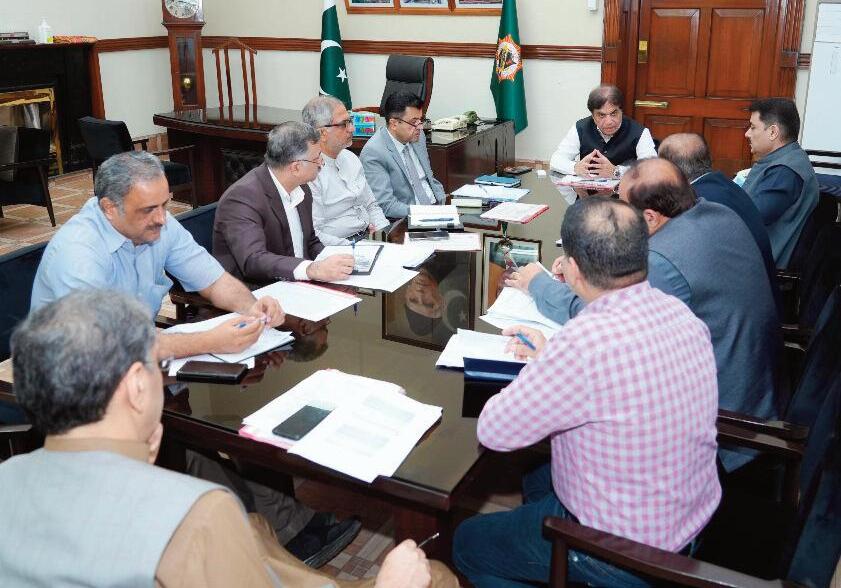

tivism has already drawn international attention Earlier this year the Palestinian Ambassador to Pakistan Dr Zuhair Zaid formally honoured them for their courage In a moving tribute he described their campaign as a powerful reminder that humanity is still alive in its purest form, praising their ability to turn pain into power, grief into hope, and silence into a voice that echoes across borders ” He added “Your sacrifice though small in action is immeasurable in meaning Your blood has mingled with the cries of the innocent Their initiative supported by their parents Prof Dr Aurangzeb Hafi and Dr Bareera N B , extends beyond Gaza, also drawing attention to child victims of war in Ukraine, occupied Kashmir, and Myanmar Human rights groups and peace activists have amplified their words, sharing their appeals across social media and urging governments to re-examine their policies At a time when war fatigue and political indifference dominate headlines the voices of these two children have cut through offering what many describe as a raw moral truth


exploitation network operating in Muzaffargarh, Punjab, leading to the arrest of two suspects and the rescue of 10 children One of the most significant cases in recent history was the tragic death of six-year-old Zainab Amin in January 2018 whose body was found after she went missing
ISLAMABAD
The Senate on Tuesday passed amendments to the Anti-Terrorism Act (ATA) of 1997 reintroducing provisions that allow law enforcement agencies (LEAs) and armed forces to detain individuals suspected of terrorism-related activities for up to three months
This follows the approval of the same amendment by the National Assembly last week The amendment introduced by Minister of State for Interior and Narcotics Control Muhammad Tallal Badar empowers the government, armed forces, or civil armed forces to order preventive detention for individuals based on reasonable suspicion of their involvement in terrorism
Under the amendment individuals suspected of activities like target killings kidnapping for ransom or extortion can be
detained for up to three months subject to the government s order
The bill amends Section 11EEEE of the ATA and specifies that anyone detained under these provisions will be subject to the constitutional safeguards of Article 10, which ensures protections against arbitrary arrest and detention
The detention will be overseen by a joint investigation team (JIT) comprising police officers intelligence agencies, and civil and armed forces
The bill was passed after a clause-byclause reading, despite attempts by JUI-F
Senator Kamran Murtaza to introduce amendments which were rejected by the majority The statement of objects and reasons for the bill highlights the need for strong measures in response to the current security challenges, asserting that the powers provided are crucial for preventing terrorist activities before they occur
Law Minister Azam Nazeer Tarar de-
fended the amendments emphasizing that the country is facing severe terrorism threats and the proposed amendments were necessary to strengthen anti-terrorism laws
He added that the bill had already passed judicial scrutiny and included a three-year sunset clause
According to Clause 2 of the amendment detainees must be presented before a magistrate within 24 hours of arrest Opposition members, however, raised concerns about the bill s potential to violate constitutional rights PTI’s Barrister Syed Ali Zafar argued that certain provisions contradicted the law and the constitution suggesting the bill be referred to a committee for further review PML-N Senator Irfanul Haque Siddiqui, speaking in favor of the amendments, stressed the need for strict anti-terrorism measures to prevent further attacks He pointed out the loss of nearly 100 000 lives
SC puts off hearing on PTI founder's plea against bail rejec tion till today
ISLAMABAD s ta f f r e p o r t The Supreme Court on Tuesday adjourned the hearing of an appeal filed by Pakistan Tehreek-e-Insaf (PTI) founder Imran Khan against the rejection of his bail pleas in cases related to the May 9 mayhem by the Lahore High Court (LHC) A three-member bench headed by Chief Justice Yahya Afridi and comprising Justice Miangul Hassan Aurangzeb and Justice Shafi Siddiqui conducted the hearing During the proceedings Salman Safdar counsel for the PTI founder appeared before the court
As the hearing began the CJP noted he could not review some documents submitted by the petitioner At which, the PTI lawyer said the case file primarily included judicial decisions only The review of all relevant docu-
ments is essential,” the chief justice remarked and further directed that any party intending to submit documents must do so by the end of the day so the bench could properly review them before the next hearing
C J P A
prosecution to carefully examine the documents submitted by the defense team
Later he adjourned the hearing until 10:30 am tomorrow (August 20)
Imran Khan had moved the SC against the LHC s last month s verdict of rejecting his bail petitions in eight separate cases related to the May 9 riots, including the attack on Jinnah House in Lahore
In the petition the PTI founder argued that a first information report (FIR) lacked sufficient evidence and termed the allegations of his involvement in the riots as baseless
It also stated that since he was in NAB custody at the time, it was im-
possible for him to take part in those riots, besides raising doubts over the case on the basis of "contradictions" in the prosecution statements
Khan also sought further investigation into the case as he suspected mala fide intent on the part of the police for avoiding his arrest for five months
The petitioner maintained that the evidence against him is inadequate while other co-accused have already been granted bail
He also called the delayed police statements unreliable and asserted that he deserves the right to bail
A two-member LHC bench, headed by Justice Shahbaz Ali Rizvi pronounced the reserved verdict on June 24 after lawyers from the petitioner and the government sides concluded their arguments
Previously, on November 27, 2024, the ATC had dismissed Imran's bail pleas in these eight cases
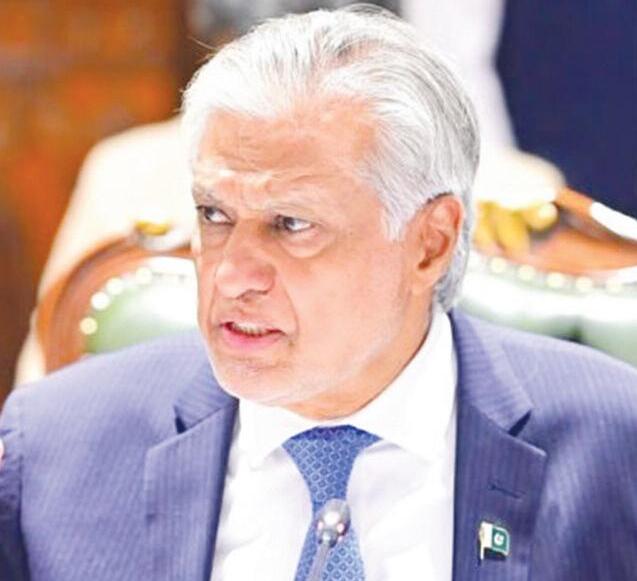
and

